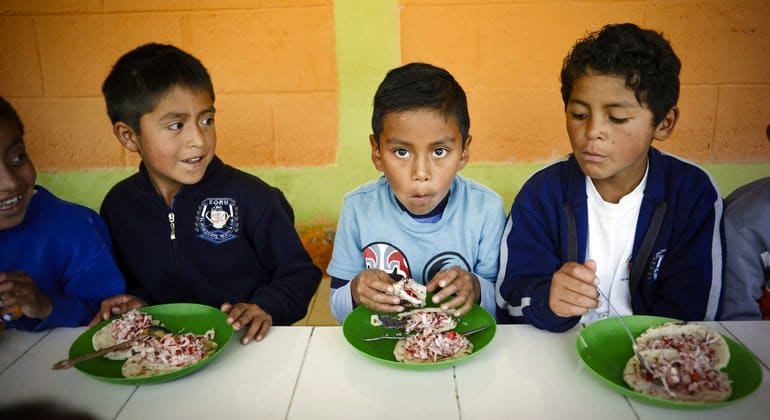Sure! Here’s the translation to American English:
—
School feeding programs are playing a key role in the fight against hunger and improving the nutrition of over 85 million students in 18 countries across Latin America and the Caribbean, according to information from the Food and Agriculture Organization of the United Nations (FAO). This topic was discussed at the Regional School Feeding Forum taking place in San Pedro Sula, Honduras, where Máximo Torero, interim FAO representative for the region, emphasized the need for policies that address economic challenges and the complex climate events affecting food security.
Torero highlighted the importance of these programs, stating that “they reach those who need it the most, absorb the impact of crises, and strengthen community resilience.” He also presented a report on the FAO’s interventions in the region, noting that the organization has supported the establishment of over 23,000 sustainable schools, promoting the creation of educational gardens and local purchases that integrate food with production and territorial development.
The FAO representative stressed that school feeding must be “healthy, sustainable, and part of a vision for both the present and the future,” viewing it as an investment in human development with a high return. Torero also emphasized the need to identify actions to optimize the efficiency of current funding sources and guide public spending in this area.
For her part, Daniela Godoy, head of Food Security and Nutritional Policy for the region, highlighted that these programs are essential for establishing sustainable agri-food systems and promoting healthy diets, thereby contributing to food security and nutrition for millions of schoolchildren.
The Forum, organized by the World Food Programme (WFP) and supported by the Government of Honduras, brought together high officials, ministers, ambassadors, and experts from different institutions who shared their experiences and strategies in implementing school feeding policies.
Referrer: MiMub in Spanish










